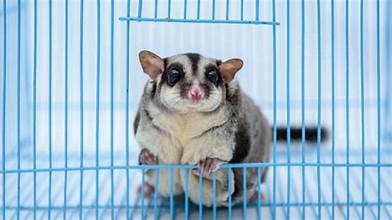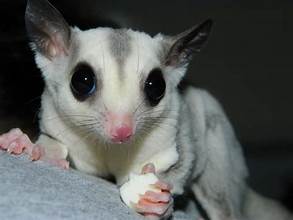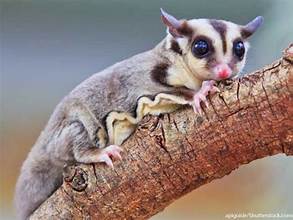Understanding sugar gliders’ specific health needs is crucial for optimal care. This knowledge can help you identify and address common health issues they may face, ensuring their well-being and happiness.
Dietary Imbalances:
As sugar glider owners, you prevent dietary imbalances. Understanding and meeting their delicate nutritional requirements is vital. An improper diet can have serious consequences, leading to obesity, malnutrition, and vitamin/mineral deficiencies. Overfeeding with sugary treats is a common culprit.
Obesity:
Excessive sugar and carbohydrates in the diet can contribute to obesity, leading to heart disease, liver problems, and joint issues.

Dental Issues:
With their tiny teeth, sugar gliders can experience dental problems. You can proactively prevent these issues by scheduling regular dental checks and maintaining a balanced diet.
Digestive Issues:
Diarrhea, constipation, and intestinal parasites can affect sugar gliders. With proper hygiene and a balanced diet. You can feel in control and confident in preventing these problems.

Respiratory Infections:
Like humans, sugar gliders can catch colds or other respiratory infections. By practicing good hygiene and avoiding exposure to sick animals, you can be cautious and protective in preventing these issues.
Urinary Tract Infections
Can occur from bacterial infections like cystitis, crystalluria, urolithiasis, and improper hygiene. Symptoms include frequent urination, blood in urine, and lethargy.
Behavioral Issues:
Stress, boredom, or improper social interactions can lead to behavioral problems like overgrooming, self-injury, and aggression.

Bone and Joint Problems:
Calcium deficiency can lead to bone and joint problems. A balanced diet with appropriate calcium supplements is essential.
Eye Disorders:
Eye infections and other eye problems can occur. Regular checks and prompt veterinary care are essential.
Prevention is Key
Balanced Diet:
Rich in calcium, protein, and vitamins. Avoid excessive sugar and fats.
Regular Vet Checkups:
Schedule routine checkups to monitor your glider’s health.

Dental Care:
Provide appropriate chew toys to help maintain dental health. Regularly inspect your glider’s teeth for any abnormalities.
Clean Environment:
Maintain a clean cage and toys to prevent infections.
Social Interaction:
Ensure your sugar glider has adequate social interaction to prevent stress-related health issues.

Proper Hydration:
Always provide fresh water.
Monitor Weight:
Regularly check your glider’s weight to prevent obesity.
Observe Behavior:
Pay attention to changes in your glider’s behavior, appetite, or appearance. Early detection of problems is crucial.
Call your veterinarian immediately if you notice any of these symptoms:
- Abnormal behavior
- Difficulty breathing
- Eye discharge or redness
- Lethargy or lack of energy
- Diarrhea or vomiting. constipation
- Significant changes in appetite or weight
- Changes in behavior or social interactions
- Changes in urine or stool color or frequency
As a sugar glider owner, your role in detecting and treating health issues is crucial. Being proactive and observant can ensure your pet’s well-being and contribute to their long and happy life.
Understanding potential health concerns and taking proactive steps can help your sugar glider live a long, happy, and healthy life.
Disclaimer:
This is only for your information and does not replace professional veterinary advice. Always consult with a qualified veterinarian for specific health concerns.




